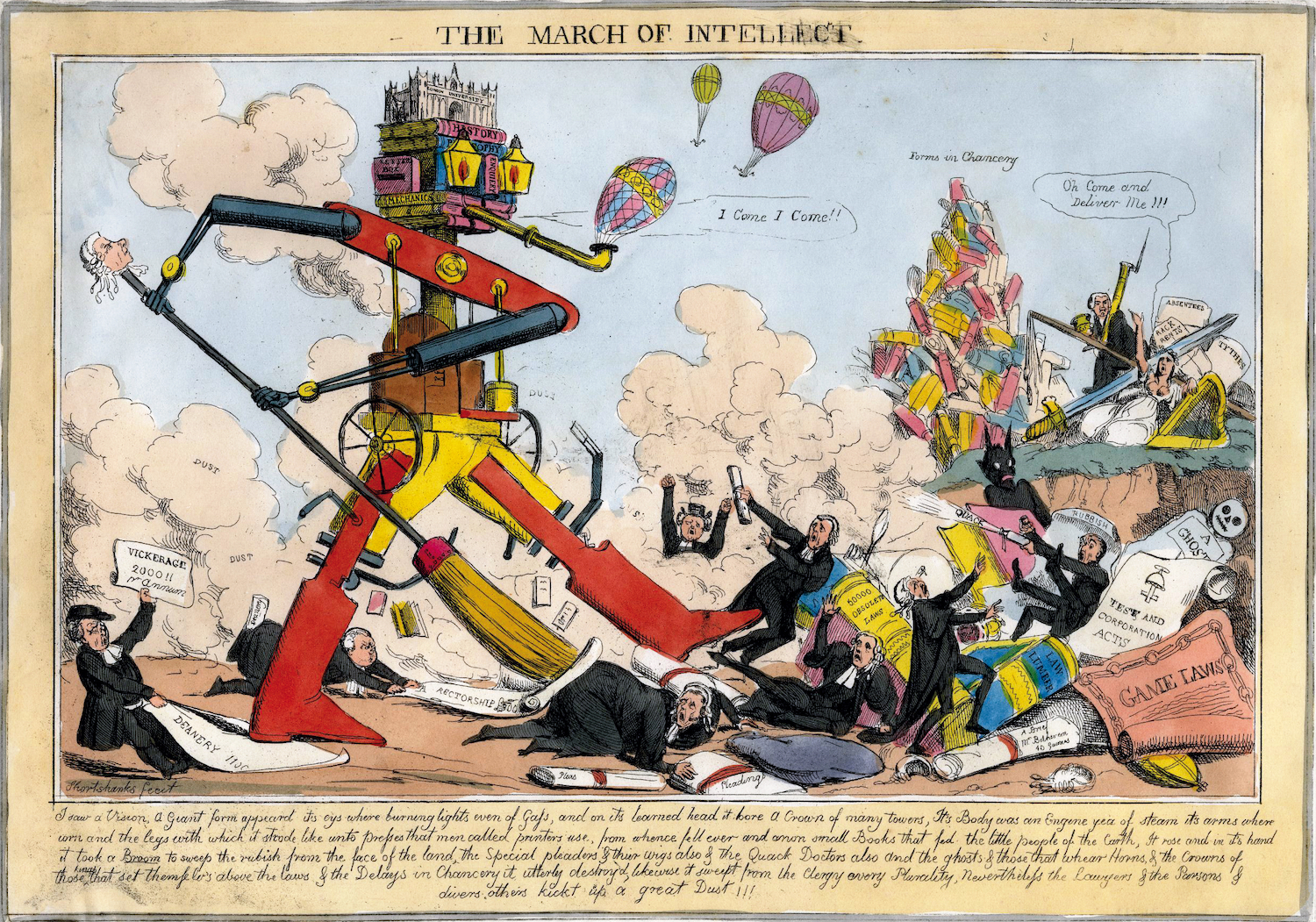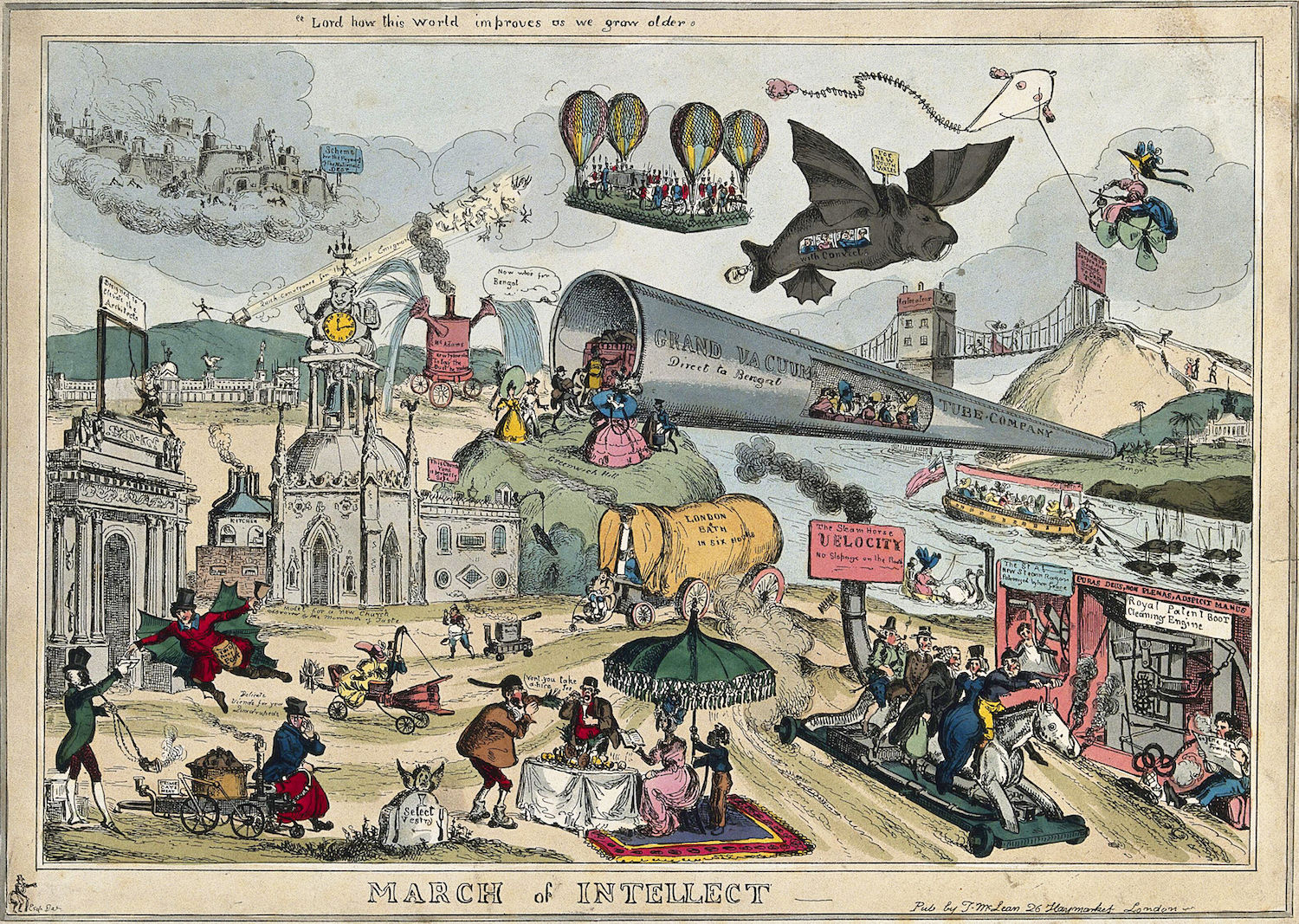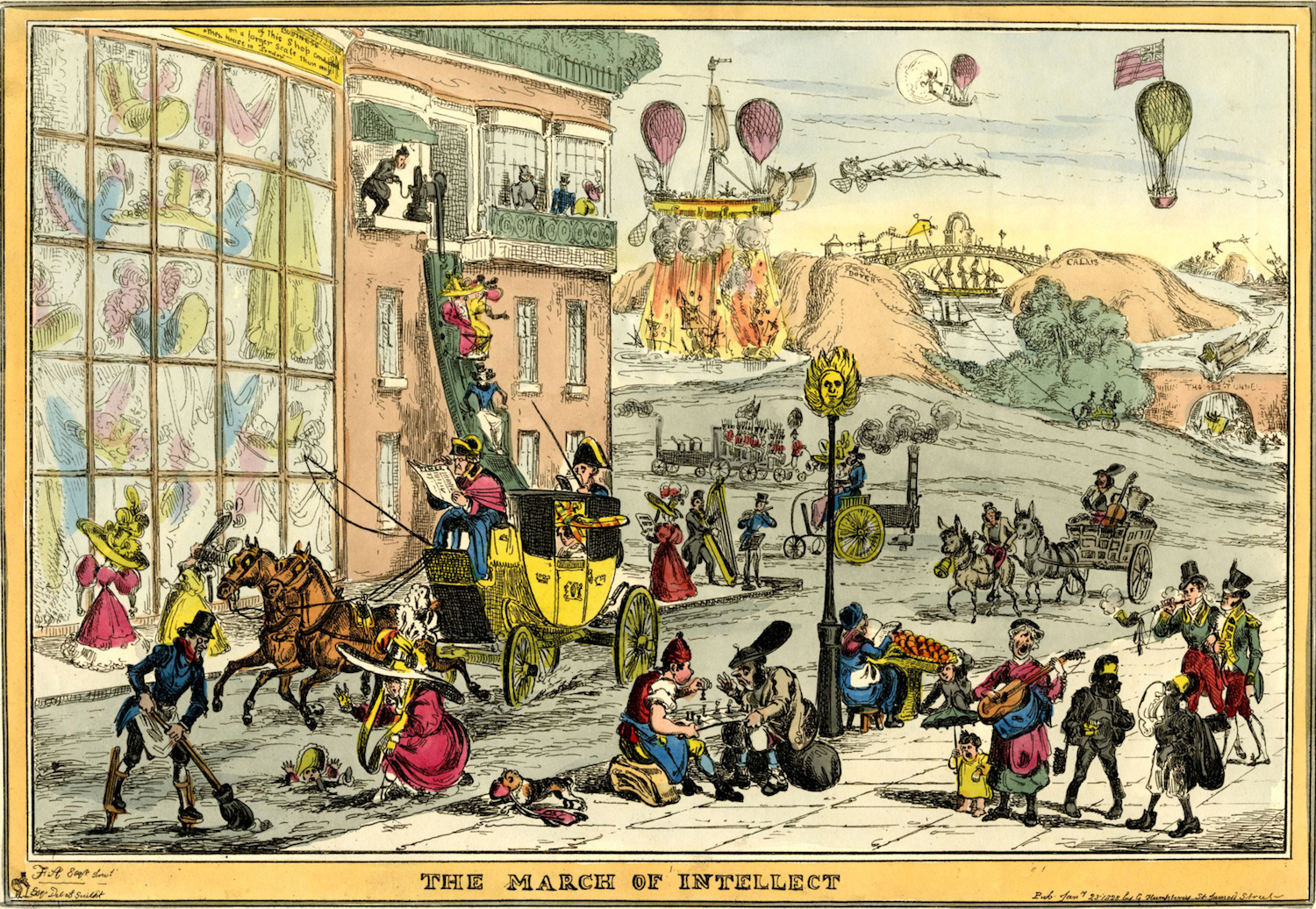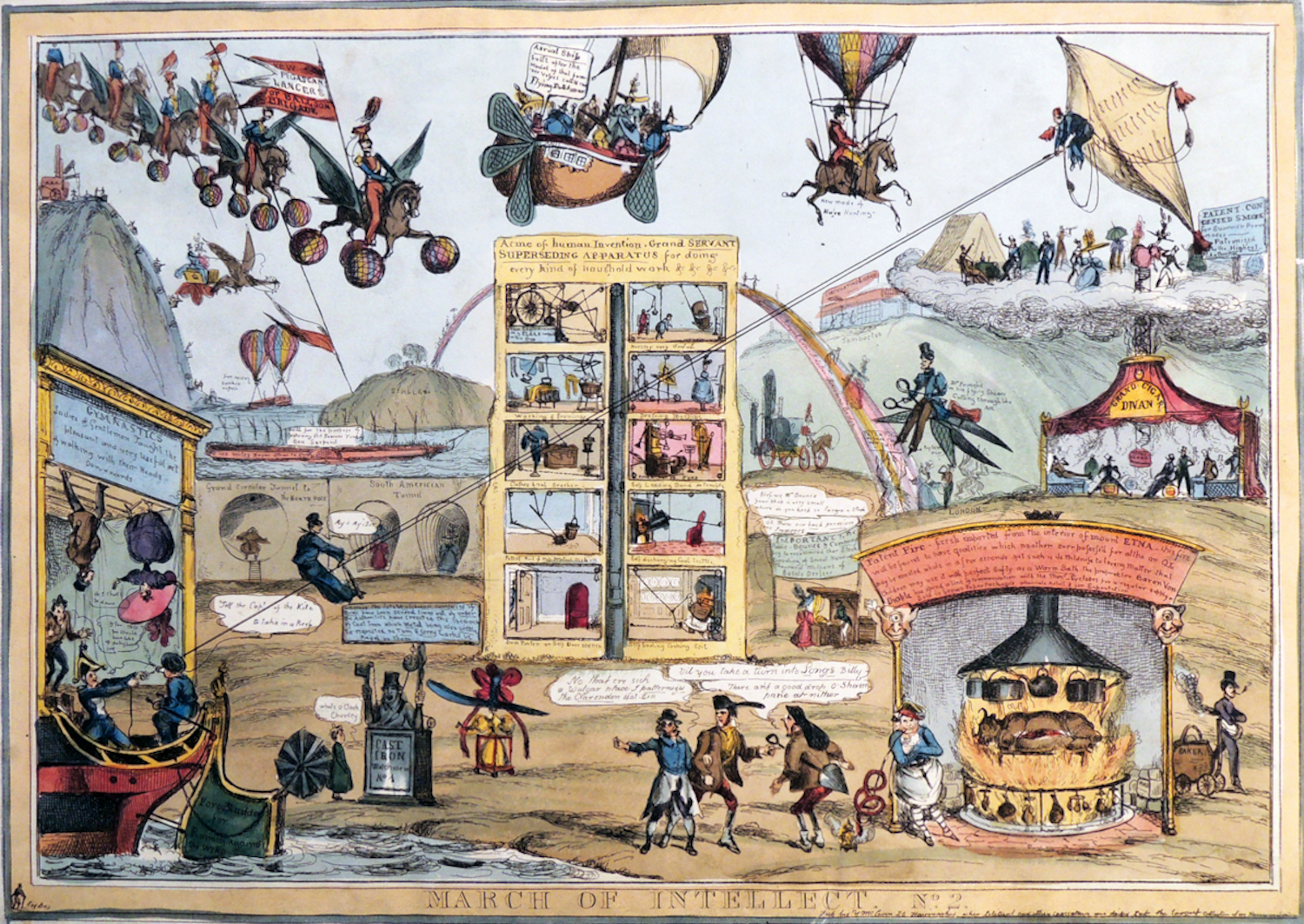
Before the Industrial Revolution, few had occasion to consider the impact of technology on their lives. A few decades in, however, certain segments of society thought about little else. That, in any case, is the impression given by the debate over what the English press of the early nineteenth century called the “March of Intellect,” a label for the apparently polarizing discourse that arose from not just the development of industrial technology but the dissemination of “useful knowledge” that followed in its wake. Was this sort of education an engine of progress, or simply of disorder?

The March of Intellect’s most vivid legacy consists of a series of newspaper cartoons published in the eighteen-twenties. They depict a world, as Hunter Dukes writes at the Public Domain Review, where “extravagantly dressed ladies window-shop for pastel finery and forgo stairwells in favor of belt-driven slides” while “a child is moments away from being paved into the road by a carriage at full gallop”; where “men gorge themselves on pineapples and guzzle bottles at the Champagne Depot” and “postmen flit around with winged capes”; where “even convicts have it better: they embark for New South Wales on a gargoyle zeppelin, but still have panoramic views.”

So far, so Victorian. One could argue more or less in favor of the world described above, as rendered by artist William Heath. But in the future as envisioned in the cartoon at the top of the post by Robert Seymour (now best known as the original illustrator of Charles Dickens’ The Pickwick Papers), the March of Intellect takes on a flamboyantly malign aspect.
In it “a jolly automaton stomps across society,” writes Dukes. “Its head is a literal stack of knowledge — tomes of history, philosophy, and mechanic manuals power two gas-lantern eyes. It wears secular London University as a crown.” It sweeps away “pleas, pleadings, delayed parliamentary bills, and obsolete laws. Vicars, rectors, and quack doctors are turned on their heads.”

Nearly two centuries later, most would side instinctively with the participants in the March of Intellect debate who saw the provision of technical and scientific knowledge to then-less-educated groups — women, children, the working class — as an unambiguous good. Yet we may also feel trepidation about the technologies emerging in our own time, when, to name a current example, “artificially intelligent chatbots have fueled ongoing anxieties about the mechanization of intellectual labor.” Every day brings new apocalyptic speculations about the rise of powerful thinking machines running roughshod over humanity. If no artist today is illustrating them quite so entertainingly as Heath and Seymour did, so much the worse for our time.
Related content:
Based in Seoul, Colin Marshall writes and broadcasts on cities, language, and culture. His projects include the Substack newsletter Books on Cities, the book The Stateless City: a Walk through 21st-Century Los Angeles and the video series The City in Cinema. Follow him on Twitter at @colinmarshall or on Facebook.


Leave a Reply